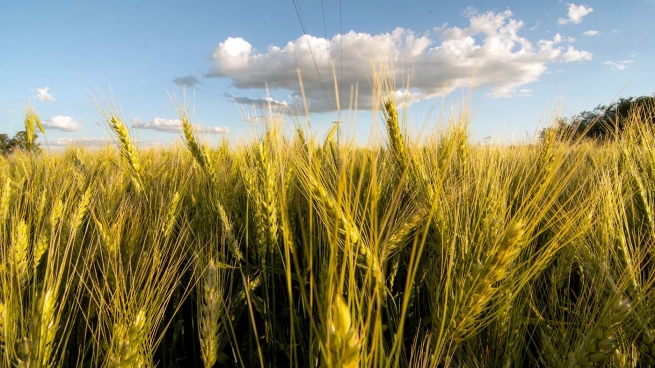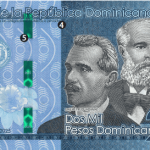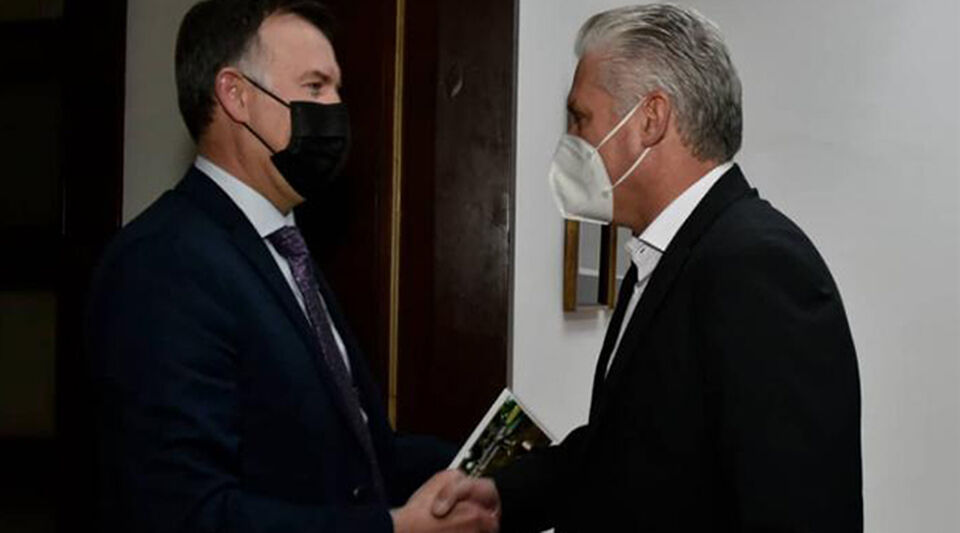The international price of wheat reached historical values last week in the Chicago market marking an escalation of US$ 185 in that period, with which it placed just US$ 5 below exceeding US$ 500 per ton, due to the war between Russia and Ukraine.
Although the improvements in the price of cereal have a positive impact for Argentine producers, the negative side is that this situation also impacts the domestic market via the rise in flour prices, which led the national government to implement measures with the intention of decoupling the international price from the local price and moderating its effects on inflation.
The March contract for the agricultural commodity closed last week at US$495.31 a tonne on the US stock market. When comparing this value with the US$ 309.75 that it reached the previous Friday, it resulted in a jump of 59.91%, an unprecedented rise in the price of the cereal.
at the local levelprices partially replicated the increase registered at the international level.
Thus, the contracts for March and July on the Matba/Rofex rose by around US$48 per ton in the week, while the contracts for the new harvest improved by US$39 to US$298 per ton.
“The rally in international wheat prices is historic,” said market analyst Juan Manuel Uberti, from the grain brokerage Grassi.
“The ports have suspended shipments, while in Russia it is very risky and difficult to buy given the commercial and economic sanctions that Western economies have established”Juan Manuel Ubertti
Russia and Ukraine together account for almost 30% of wheat exports worldwide, so any impact that production or shipping logistics may have has an impact on the grain market.
According to Uberti, in Ukraine “the ports have suspended shipments, while in Russia it is very risky and difficult to buy given the commercial and economic sanctions that Western economies have established. Therefore, the demand has moved to other origins. , like the United States and Europe, overheating prices in a remarkable way”.
Beyond the rise in prices, the concrete thing is that the wheat that could be exported from Argentina to capture these values is not much.
The exportable balance of the country is 14.5 million tons, of which 14 million have already been acquired by the export sector, with Sworn Declarations of Sale Abroad (DJVE) for 13.6 million tons, so there would be no too much travel to originate more business.

More consequences in commodities
The conflict also put a question mark on the input market, since Russia is an important producer and exporter of fertilizers, which could generate an increase in costs for the next grain campaign in Argentina.
“The geopolitical conflict and the consequent level of prices brings lights and shadows to the local market. Its duration is unknown. The volatility in prices will be present, to the rhythm of the news about greater or lesser tension between the countries involved. all this, we must add the local elements, where the possibility of limitations is always latent”, Uberti summarized.
But the rise in prices can not only be read as an opportunity to generate more foreign currency income or an incentive for the coming campaign, but also it has its impact on local food prices, an issue that also occurs on a global scale.
“The increase in international wheat prices has its positive effects, but it also has a negative effect in a context of high inflation in the country, which is that it pushes up domestic prices”Hernan Letcher
“The increase in international wheat prices has its positive effects, but it also has a negative effect in a context of high inflation in the country, which is that it pushes up internal prices,” the director of the Center for Political Economy told Télam. Argentina (CEPA), Hernán Letcher.
In this sense, Letcher indicated that “what is happening today, especially in the bread production chain, is that there are grain retention problems and, therefore, difficulties for the purchase of flour”, at the same time that he stressed that this “tension” in prices will also occur in sunflower oil and cornwhich can affect sectors such as poultry and livestock.
In fact, the president of the Argentine Federation of the Milling Industry (FAIM), Diego Cifarelli, commented to Télam during the week that the sector “is waiting for wheat assistance from exports, beyond continuing to try by all means to convince the producer to sell the wheat, which is a great time to do so,” after a meeting he held with the export sector and the Ministry of Agriculture, Livestock and Fisheries in which the problem was exposed.

Likewise, he indicated that the price of a bag of 25 kilos of flour went from $1,300 last week to $1,500 these days, at the same time that he assured that there is a full supply of the product.
Government measures for decoupling
Among the tools to decouple the international price of wheat from the local one, the Government announced the creation of a trust for 800,000 tons of grain until January 31, 2024 “to guarantee the supply and price of basic foods such as dry noodles and flour” included in the Care Prices program,
About, the Secretary of Domestic Trade, Roberto Felettisaid that bread “immediately requires another 800,000 tons and we have to look for decoupling mechanisms,” for which “now we begin a discussion with the issue of supplying other items, such as bread.”
Regarding the trust, Letcher considered it an “interesting” tool in the sense that it allows, in a scenario like this, to contain the price in a viable discussion with the sector, but the problem it has is that it is partial and does not solve the retention of the grain.”

















